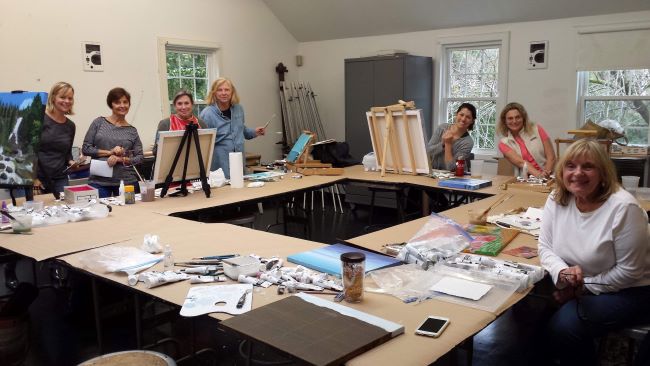To Your Health
Live Long and Well in Rye
By Lee Sandford
A while ago I read “The Blue Zones Solution” by Dan Buettner, a National Geographic fellow who traveled to the five places in the world where people live the longest (the Blue Zones), to research why that is and correlate what their diets and lifestyles have in common. Buettner went on to found the Blue Zones Project which works with communities to apply these findings. It has dramatically improved the health of more than five million Americans to date, and I love listening to and reading about updates from the towns he originally worked within the book.
Lots of the towns required quite radical infrastructure and policy changes. I’d argue that here in Rye we have a relatively lucky starting point, not requiring such changes, it’s just down to ourselves to make the right lifestyle choices. If you look at their website (bluezones.com), you’ll find nine lessons you can apply to your life, but let’s take a look at some of them under three categories and see how implementable they are in Rye.
Diet
You probably won’t be surprised to learn that the diets of the five zones were overwhelmingly plant-based. In the American Seventh Day Adventists group, meat, fish, and poultry made up only 5%, of their diet; in Okinawa, Japan, just 2%. In Okinawa, they also say a form of grace before their meal which reminds them to stop eating when they are 80% full. The best way to control portions is to mostly eat meals cooked at home. Use mainly plants, and embrace legumes, olive oil, nuts, and seeds (all of which also feature heavily in the Mediterranean Diet). Buettner says it behooves us all to learn to make six tasty plant-based meals to have in our repertoire.
In some towns implementing the Blue Zones solution, they had to start environmentally, because people drove past fast-food chains daily, (one high school was next door to one), as well as billboards advertising junk food. In Rye, we have no billboards or fast-food chains and the deli nearest to our high/middle school serves healthy soup in winter, smoothies year-round, and has an excellent salad bar. The good choices are right there for us.
Food should not be fast in any way. A contributing factor to longevity in Ikaria, Greece, is thought to be that the people eat slowly, and with family and friends. (They also take afternoon naps!)
Exercise
The biggest message to come out of the Blue Zones study regarding exercise and movement is that we need to move naturally, throughout the day, not just thinking of movement as confined to our time in the gym. The world’s longest-lived men in Sardinia, Italy, don’t need to think about exercise, because they are shepherds wandering the island’s highlands for hours and miles per day.
In a podcast, Buettner was asked, if he were king for a day, what changes he would make. His first measure would be to “raise gas prices to $50 a gallon” to get us out of our cars and walking. He noted that a newer study he’s done found that the happiest places in America are ones which are very bikeable and walkable. In our small town it isn’t just easy to walk, it’s a delight — whether you’re walking with friends for a healthy “therapy session”, just to enjoy the landscape, or very satisfyingly walking to town to multi-task your exercise with accomplishing chores and avoiding parking stress.
Social
Maintaining a sense of purpose, known in Japan as <ikigai>, is seen as key. The Sardinian shepherds don’t retire so much as just shift jobs. They may stop tending sheep, but they’ll play an active part in village life, giving them something to get out of bed in the morning for and use their brains. If there’s anything that’s positively bountiful in Rye, it’s volunteer opportunities for your sense of purpose!
Strong connections with family and friends also predominated in social factors, and Buettner quotes a study which impressively showed that joining a group that meets even once a month, produces the same happiness gain as doubling your income. I conducted an opinion poll on this and received a concurring response, with people mentioning their college friend groups that still meet up, book groups, and bunco groups.
In a great testimony to The Rye Arts Center, Suzanne Saurack shared, “I have been enrolled in the same painting class since 2010. I have had classmates ages 18-88. We’ve had babies, grandbabies, bereavements, new jobs, the list goes on. The one constant has been going there each week to paint. We encourage and support each other. It’s a true gem in my life.”
In Okinawa, such close social groups are known as <moai> and through our many amazing local organizations, we have great opportunities to create them.
Caption:
A group of local women enjoying painting together in a class at The Rye Arts Center.















